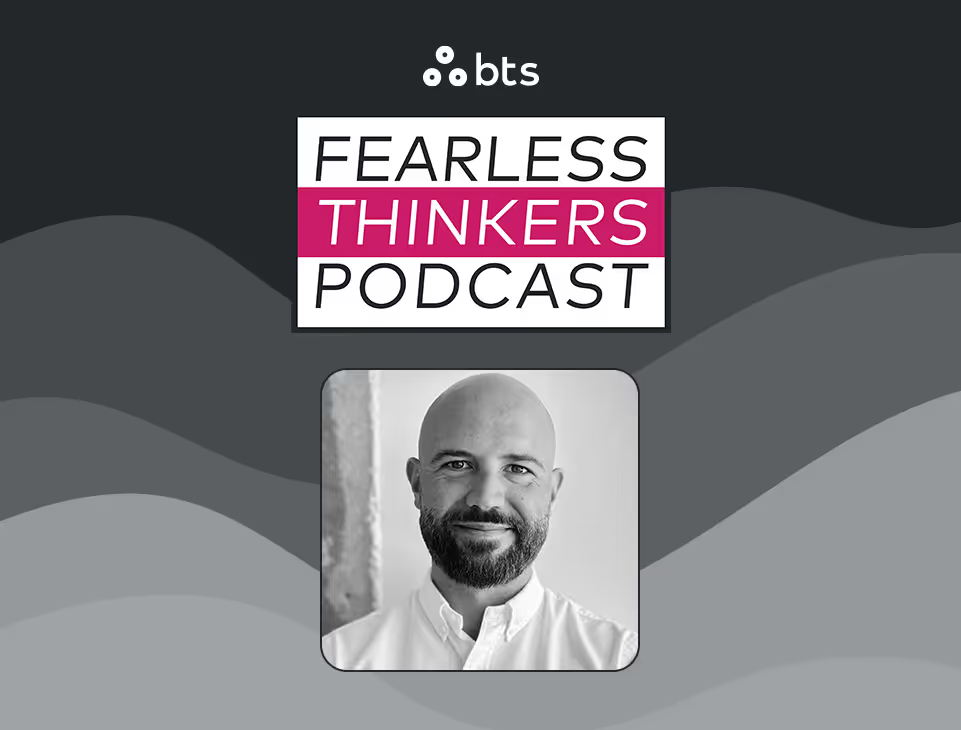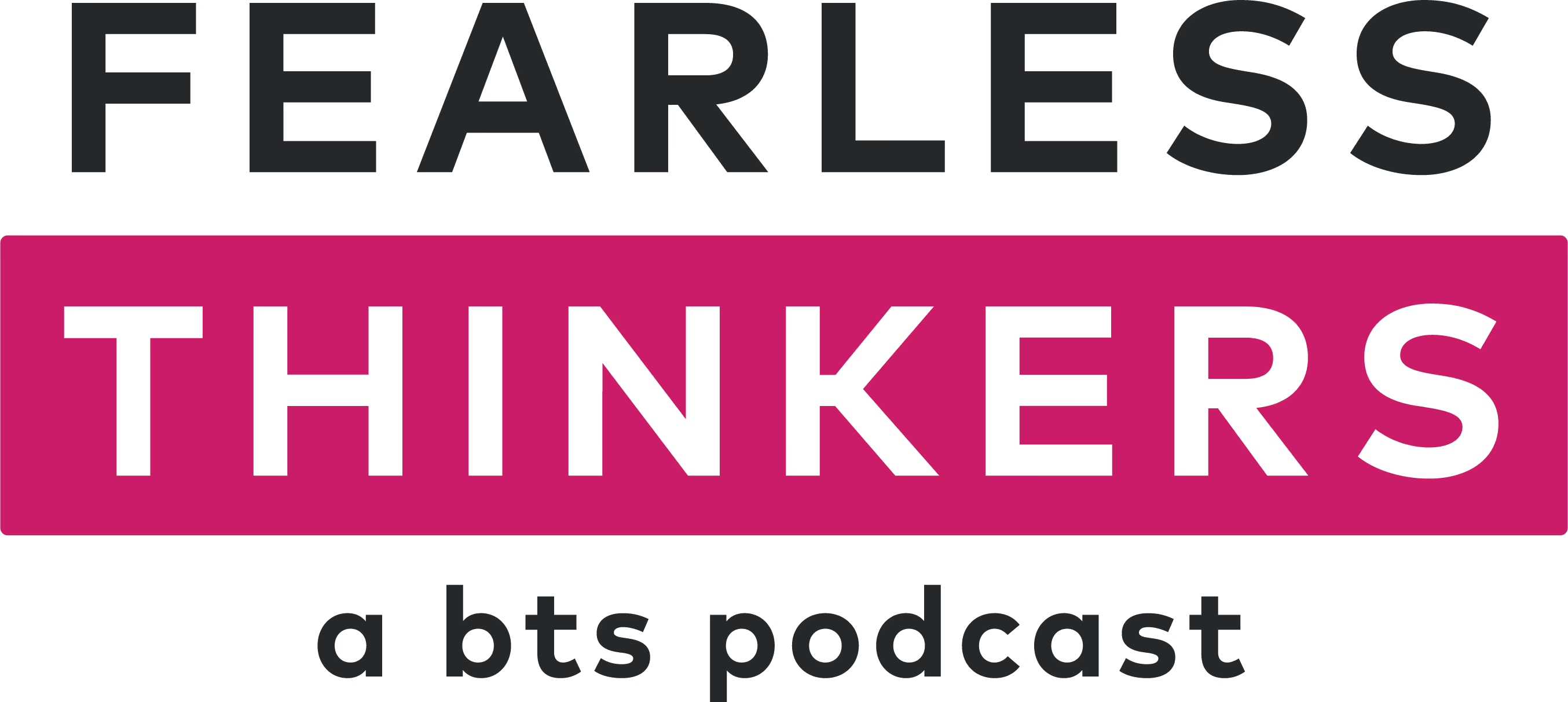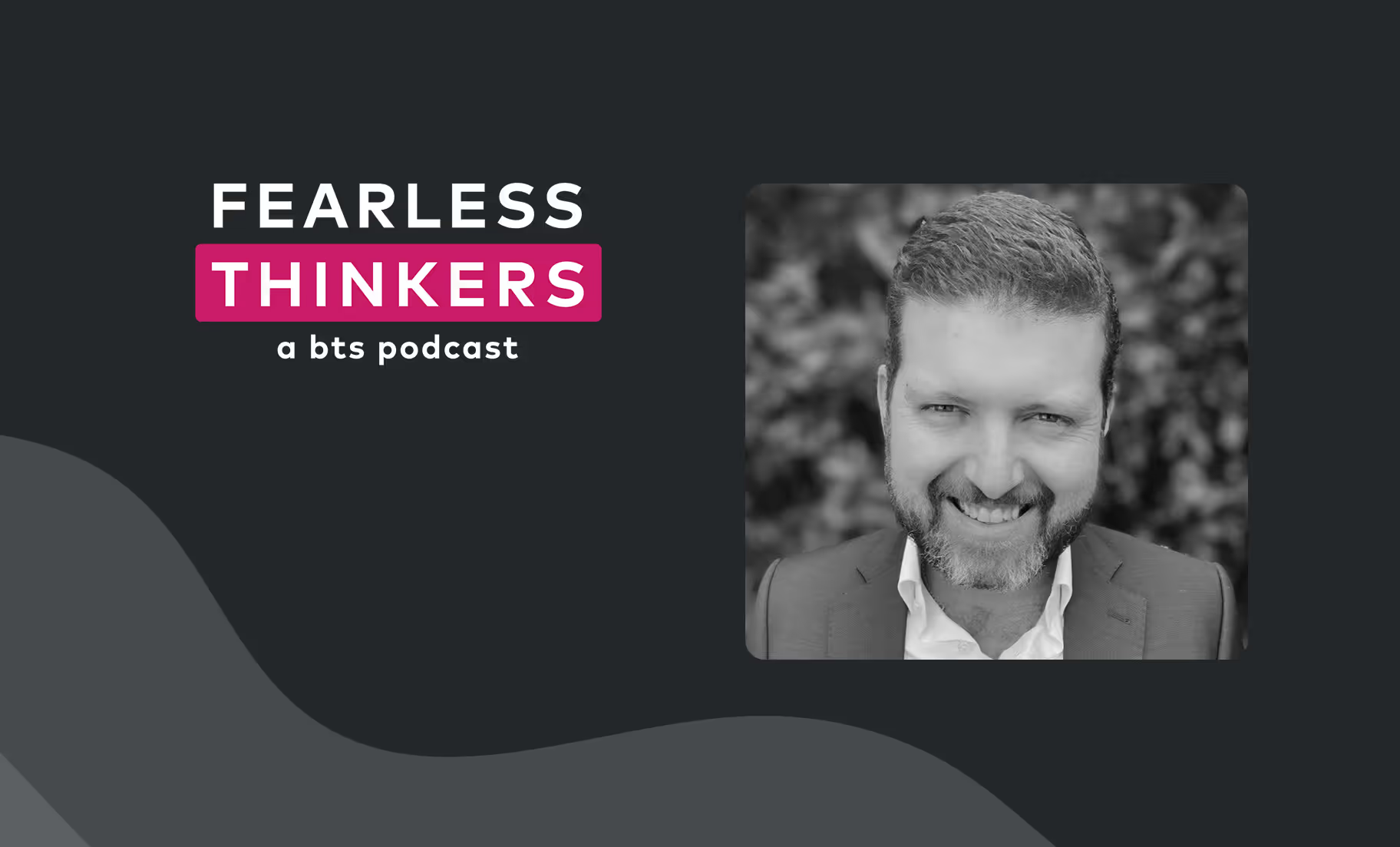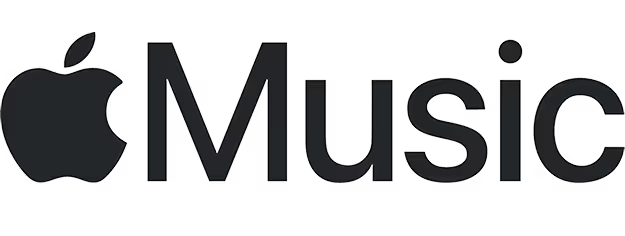Revolutionizing sales: How AI coaching is shaping the future

Revolutionizing sales: How AI coaching is shaping the future
Join host Rick Cheatham in this week's episode of Fearless Thinkers as he welcomes Bowen Moody, CEO of Verity, the latest acquisition by BTS. In this insightful discussion, Bowen sheds light on Verity's innovative AI coaching tool, detailing its current applications among sales professionals and its transformative potential for the future of sales. Discover how AI is reshaping coaching strategies, empowering sales teams, and driving performance like never before. Listen now!

Most of us want to lead in a way that matters; to lift others up and build something people want to be part of.But too often, we’re socialized (explicitly or not) to lead a certain way: play it safe, stick to what’s proven, and avoid the questions that really need asking.
This podcast is about the people and ideas changing that story. We call them fearless thinkers.
Our guests are boundary-pushers, system challengers, and curious minds who look at today’s challenges and ask, “What if there is a better way?”If that’s the energy you’re looking for, you’ve come to the right place.
Rick: Hello and welcome to another episode of Fearless Thinkers. I'm your host Rick Cheatham, and today I sit down with Bowen Moody. Bowen is one of the founders of WonderWay, and what we're going to do a little bit different than usual today is dig into his AI platform. It's actually one of the coolest things that I've ever seen, in large part because it solves the biggest problem that I had as a frontline sales manager. And that was getting enough reps with my team to be able to effectively coach them. So, step with me into the wonderful world of AI and explore Verity with Bowen Moody.
So, Bowen, welcome to the show.
Bowen: Thanks for having me, Rick.
Rick: Of course, of course. What's going on in your world today?
Bowen: Well, today's just a workday, but I'm actually homebound because I dislocated my toe on the weekend. If you're interested to know, I was surfing and I dislocated my toe and then I had to swim back into shore, crawl back to my car and then make it back to the hospital. So, that's what's happening in my life at the moment.
Rick: Wow. Wow. Well, that's such a better injury story cause I think the last time that I broke something, I was walking down the stairs with a laundry basket. So, surfing is a much better position to be in. Well, thanks for the time today, I guess.
It would probably be worth it for you to introduce our listeners a little bit more to where you come from in joining the BTS family and a little bit more about parody.
Bowen: Yeah, I'm new to the BTS family. I just joined the company about four months ago after my company Wonderway was acquired. So as part of the acquisition, we rebranded as Verity. and in a nutshell, what we do is we build an AI sales coach.
Rick: So, wow. I love how you say so matter of fact that you built an AI sales coach when most of us are still trying to figure out what AI is, I'm wondering if you could tell me just a little bit more.About kind of the process behind doing something like that and the work that it's doing for salespeople and sales leaders today.
Bowen: Yeah, for sure. So, the key idea behind the product is that it operates the AI sales coach operates very similar to what a real manager would do. so the way it works is that it integrates into calling tools like Microsoft teams zoom and also calling call center dialers like ring central and what it does is it records the sales conversations that reps are having, and analyzes those conversations to give them real time feedback off the call.So, what it will do is after each call, it will summarize the call and give them feedback around what was the main strengths and weaknesses they had on that call, and then it will aggregate the data across all of the calls. To show them what are their consistent areas for improvement so that we can share that with the rep and also with the manager so they can speed up the time that it takes to figure out what the team needs help with and track the improvements of how things are changing over time.Rick: Wow. And I would also think since you're aggregating so many calls versus just the occasional ride along, it would help sales leaders. And even the sellers themselves understand where they're getting stuck without as much bias.
Bowen: Yeah, 100%. I mean, one of the biggest challenges we see is that I think coaching is one of those important, but really urgent things for most sales managers. I think most sales managers would like to do coaching, but they really have the time for it. And it's one of those things that always gets deprioritized.So, when we speak to customers, most sales managers we speak to are probably listening to less than 1 percent of the sales calls the reps are having and what that means is that when they do go to have a coaching conversation, they're kind of shooting from the hip or that they're guessing about what the gaps are that the sales reps have.So one of the big benefits here is that by analyzing not just one call, but all of the calls that we're doing, we can really start to iron out some of those anomalies like every rep has a good call or a bad call and by analyzing enough calls, we can smooth all of that noise out.And we can really identify what is the consistent strength and weakness that people have. So, I think this is great for the rep because we can focus on the most important things and for the managers, it's also good because it can save them a ton of time listening to calls. I think if a manager was going to do a really good job of call coaching, they'd probably have to listen to, I don't know, maybe five or six calls to try and figure it out for themselves, but using AI, we can now do that work for them so they can jump on that conversation and already have that legwork done for them so they can just focus on coaching on the things that matter.
Rick: Well and it's that the things that matter part that I do think is the hardest, even if I know as a sales manager, how to coach to something and even if it's important enough to me to take the time to do it, getting the diagnostics right, I think is really hard. So, this feels to me like something that, dang would be super helpful to me.Cause I'm still a sales leader, even within our business. Well, cool. So, I guess the other thing that just popped into my head, I understand the call center context because we all get that whole, our calls are recorded for quality and training purposes. How are we doing that? As sellers, how are we doing that? Basically, maintaining privacy or providing the right kind of notification to the customer in that kind of environment.
Bowen: Yeah, yeah, for sure. So, I think it's important to understand that we aren't the first company to record sales calls. I think, as you said, in the call center space, this is very mature. They've been doing it for. Since I can remember, but even in the B2B space, there's been quite a few companies that have popped up in the last 10 years or so, that have been recording B2B conversations as well.And in fact, more than 50 percent of B2B companies are already recording the sales calls to make this like GDPR compliant, all the sales reps need to do is they need to inform the customer that they're recording the call. So, you just need to ask the consent and then once you record the call, then it's actually, the property of the company to do with it, what it likes.So, I think it's important to understand that we aren't really pioneers in the sales call recording and analytics space, but what we are pioneers in is using generative AI to analyze the calls. So up until a year ago, the only way up until generative AI was released the way for doing sales call analytics was around keyword analysis.So basically, you take a transcript, and you could count how many times a certain word was said. and then you try to figure out if there were positive words or negative words and try and give feedback around that. But it was very, very basic, but I think the key breakthrough that has come out since generative AI in the last two years is that we can now actually understand the context of what's being said on the call.And we can start to have an opinion about what they did well or what they can improve and that was just something that wasn't possible until the new technology came out. It was just released.
Rick: I feel like I've heard a few times is these generative AI models are only as good as their data set that feeds them. Given that so many organizations, well, actually I was about to say, especially in the B2B space, but really any seller they feel like their sales technique or processes is many times, both art and science. So how do you train your AI model to reflect me, my sellers, my goals in the marketplace right now?
Bowen: Yeah, that's a good question. I mean, from our side, we definitely focus more on the science. I think the reason is that it's easier, but I think it's also the thing that's the easiest to train the easiest to coach on. So, the way that our product works is that, pretty much all of the customers we're working with, they have a sales methodology or a sales playbook that they want their sales reps to follow.But I think it can be a huge challenge getting people to follow that playbook. So, what you can do with our product is you can set up, you can customize the coach for what it should be coaching them on. So, you can set up a process around different types of calls, it could be different calls in the sales process.How you want people to handle their cold calls, the discovery calls, the demos, the negotiation and then the coach will coach them against that playbook. So, the thing that we're really focusing on, I'd say, is that science or that process of how do we get everyone up? How do we find those people that are maybe the B players, how do we coach them to become a players in the team by getting them to follow that consistent process? I think there is a truth to the art and sales and some people have the gift in the garb and things like that. But I think that is much, much harder to train on.But it's much easier to move the needle on getting people to follow the right process and following the right steps and having a successful call. So that's really where we focus.
Rick: So, I can't have a conversation with the AI expert without asking the question. So, what do you think is next? What do you think next with AI in the world of coaching?
Bowen: So that's, a big question. I mean, at a broad level, the big conversation in the industry is this tradeoff between general purpose, large language models and more specific smaller models. So, I think we're reaching the point where, like at the moment, there's been the release of ChatGPT everyone knows about ChatGPT and Claude and these big large language models.But there's a big conversation going on in the industry, whether that's going to be the future, especially in the B2B space, will we be using these general purpose large language models? Or are we better off switching to maybe more focused models that are the purpose trained just for the purpose that they're serving.So, this is a big topic for us because we are looking at this, we're building our own models and we're also testing them against the general purpose models and from what we've found, our own train models are just not able to perform at the same rate as the general purpose models. But I think this will change in the next couple of months.So, this is something we're constantly checking. Is training our own models and comparing them against these general purpose models because as soon as they're good enough, I think that this will be a big game changer because it'll make it much cheaper to run these models and perhaps, we might end up in a situation where you might have smaller models that are working together to solve problems at different stages in the process.So, I think on a macro level, I think that's probably the biggest conversation that's happening in the industry at the moment. When it comes to sales training and sales coaching, I think the big conversation is what do we automate? I think everybody that I'm speaking to is interested in AI and many companies are running different experiments, but trying to figure out what are the best areas to apply AI in the stack is a challenge that I think a lot of people are trying to figure out for themselves.So, in my opinion, where I think AI can provide the biggest impact is doing those super repetitive tasks that are very clearly defined and it's just doing the same thing over and over again or doing really boring tasks that nobody wants to do or tasks that, as I mentioned before, urgent, not important.So, I think this is where coaching Is an important one, but maybe something that people aren't doing very well. And I think it's an area where we can provide a lot of impact. I've seen some companies that are also looking at how can they replace salespeople in the process? I think we're still quite a while way away from replacing salespeople entirely.But I do believe there will be elements of the process that will be automated quite soon. So, repetitive outbound processes, maybe some inbound sales calls. If it's just very simple interactions, and very, very basic repetitive interactions, I think these will be automated very, very soon.Yeah, coming back to the question, what a company is struggling with, it's about everybody sees the potential, but everyone's still trying to figure out where to start and I speak to many people, many sales leaders that are a bit confused. I'd say like they're little bit hamstrung.They don't know where to start and many people are hanging back and not doing anything. And I think that is the worst approach you can take because you just have to get started and learn and as the models evolve, I think you need to be prepared to adapt but not doing anything is just going to cause companies to fall behind in my opinion
Rick: Well, it is very interesting to me because as someone who sees so many sellers from so many different industries, and because of the role that I play at BTS gets multiple sales emails every day, one of our BD leads came to me and showed me an email from a client that said, please tell me you guys aren't doing AI emails.And I was like, well, I'm not doing AI emails. This is actually really you and I say that because I am curious as to your thoughts and I'm sure it's premature and I'm sure on some level, we'll figure out what works, but I almost think of when people started installing kind of that phone tree to get you the information you needed for our hours of operations, press one for our, you know, and you're just like, by the time I've pressed my eighth number I'm ready to hang up.And I would think it would be somewhat the same for I'm making a decision that could cost me my job am I really best served by AI automated response. I mean, that's basically the world that sellers have been playing, especially in the B2B environment for years. I'm curious because on some level, I'm already seeing from clients and even in my own life, a level of backlash against the amount of outreach that AI enables.
Bowen: Yeah, talking about SDRs are outbound Salesforce just released an AI SDR. There’s a small startup that just raised 20 million to build an AI SDR to do outreach. I've spoken to some companies that are using them.And the first feedback I've heard is that they'll kind of boil the ocean to one customer said they'll burn down the orchard to get one up was the analogy that they used, and I think that's terrifying to consider that most people are already overwhelmed with emails and then maybe this is going to take it to the next level.So, I think there's clearly room for improvement. I think it's going to come, but I don't think it's there yet and I think there's some companies that are experimenting with it and to your point about people losing their job. I still believe that companies should be doing experiments, but they should be keeping them small to let go of your whole team and implement an AISDR and then get that done. That surprise afterwards would be a very bad move, but to run a small controlled pilot to see within a very controlled segment what results it can give and to take that into learn, I think is not a bad move.So again, AI is very new for everybody. I think the companies are trying to figure out where to apply it in their stack. The startups are also trying to figure out how to best apply it and I think the best way to do this is to run a variety of different pilots in the business, and just get started because, as long as you can limit the downsides, you need to be in the game to learn.I don't think you can sit back and wait for everyone else because you'll just be too far behind. If you do that, it might be.Rick: No, it makes good sense. and I also completely agree the incremental approach is always better, especially with Salesforce's than just pushing the reset button and dealing with a year of repercussions, at least, of that big push. I think that those are all very interesting conversations to continue having. So, I'll definitely want to have you back as we continue to learn more about what AI can do in sales, obviously so much of what we do at BTS goes beyond just the commercial organization. So, I'm wondering if you've now that you're part of the broader family, so to speak, what your vision is for potentially other use cases?
Bowen: So, it's no surprise that sales training is just one aspect of what BTS does. I think that the majority of their practice is more focusing around leadership training and coaching. So, we're running some of our experiments of our own as part of our vision is now that we've figured out how to do sales coaching, we're looking at how we can also provide coaching to leaders.So, coaching to first line managers around how they can have better coaching conversations with their teams coaching them on how to have their team standups better and also executive level coaching. One interesting insight we've seen is that very senior leaders, if they're doing big presentations to the board or the executive team, they often practice those presentations many, many times over.and they're very, very uncomfortable, usually doing that in front of other people or exposing themselves to critical feedback. So, one use case we're also exploring is providing a safe place for leaders to practice their presentations and giving them that instant feedback so they can iterate and nail that pitch.So, I think the we're starting in sales coaching, but the application at a broader scope what we're doing is really conversation performance, and how this can be applied across all sorts of different types of conversations in the business. So, we're starting with experiments now, and we'll be looking to roll these applications out next year.
Rick: Wow. Well, I'm sure some of our clients are like I want to be in one of those experiments, but they'll have to get in line behind me, at least when it comes to that presentation coach, just the very second, you're ready with that. I'm your favorite guinea pig. I promise. but anyway, I appreciate so much the time you've spent with us today, and I'm really excited to see how this continues to evolve.I mean, at least from my perspective as a sales marketing leader for years and years and years, that diagnosing the what, when it comes to sales coaching, has always been the hardest part, and it sounds like you're solving that for a lot of people. So, I strongly believe that's a big help to folks.So really appreciate your insights, I really appreciate your time and, like I said, we'll have to have you back soon.
Bowen: Great. Thanks for having me on the show.Rick: Thanks for joining me today. It's always a pleasure to bring to you our Fearless Thinkers. If you'd like to stay up to date, please subscribe. Bios for our guests and links to relevant content are always listed in the show notes. If you'd like to get in touch, please visit us at bts.com. And thanks so much for listening!
Related Content

Many organizations invest large sums in assessments and training programs, but too often, employees revert to their previous ways.
This occurs because the initial assessment and resulting intervention targeted the symptom (behavior), rather than the root cause (mindset), of a performance gap.
So, how can an organization create long-lasting, business-improving behavioral change?
Assessments should expose the subliminal thoughts, feelings, assumptions, and beliefs that drive an employee’s current performance, or that may obstruct their full potential. Only then can assessors accurately design interventions that shift mindsets, and therefore behaviors, for the better. Here are three instances of how your organization can use this approach.
From individual insight to customized coaching
Oftentimes, excellent salespeople-turned-sales managers struggle to share their wisdom and drive peak performance from their teammates. Why? Because their individual insights into the art of selling are not universal.
No one skillset nor tried-and-true script makes a great seller. Rather, successful salespeople have a certain belief system that drives their curiosity towards customers, reactions to rejection, and general stamina. A simple shift in any of these mindsets can transform a sales team.
So, how do you implement this within your own team? Start by leveraging a mindset assessment that identifies the beliefs, values, and experiences currently at play. Then, follow up with a behavior-changing tool, such as personalized coaching, to help team members shift to mindsets that cement learning and ensure long-term behavior change.
Mindset shifts in multitudes
Pod coaching, also known as small-group coaching, is another way to leverage mindset assessments. Mindset assessments can be deployed at scale to provide cohort-level data, helping you select the key mindsets that need to change within a larger community.
For example, a leading multinational energy organization leveraged mindset assessments to map out a pod-coaching journey for its teams. The organization assessed 80 employees, identifying and creating customized coaching content to address the group’s most-needed mindset shifts. As a result, the journey was highly relevant to the teams’ most critical needs.
Some organizations have adopted cloud-based, self-paced individual learning journeys, the design of which is informed by mindset assessments. These mindset assessments identify individuals’ most beneficial shifts, which are then incorporated into their individually-personalized learning journeys.
Armed with this data, organizations can prioritize the shifts they see as critical for their people’s development today and save the shifts that will be more impactful in the future for a later date. The result is an ongoing personalized journey that grows with employees.
To ensure that your people’s default behaviors are the right ones for your organization, consider using mindset-evaluation assessments rather than behavior assessments. Mindset assessments allow you to identify and address the root cause of your peoples’ existing beliefs, shift them to ones that are aligned to your organization’s values, and structure a sustainable future for your organization.

At a workshop on virtual selling for the Key Account Managers of a Fortune-100 technology corporation, Anna, a participant with over 20 years of experience said:
“I can’t wait for this to be over and to go back to visiting my clients as usual.”
In today’s environment, comments like these are not uncommon – reluctance to change is a constant of human behavior and the world of hybrid selling is challenging for even veteran sellers. At the end of a recent Sales Transformation updating the sales model of a leading pharma company, Luis, a sales representative, commented:
“In our work, face-to-face meetings are all you need, all these tools (you just showed us) are no good.”
The number of people resistant to virtual selling in the last several months has soared to new heights, but this is not a sustainable mindset for the future.
Virtual selling in today’s environment
Virtual selling is not new. What is new is the speed at which it is being adopted under the current circumstances – at some organizations, by force, and at others, with great reluctance, as in the examples of Anna and Luis respectively. Mindsets like theirs are present in all sales organizations and purchase departments and represent the innate human response to a perceived threat, fight or flight. Employees will either take flight, mentally checking out, experiencing denial, and waiting for the storm to pass, or they will fight, taking action to sell virtually, but longing for things to be “back to normal”. What these Salespeople don’t realize is that virtual selling is here to stay and that its adoption cycle has shortened. In fact, virtual selling can be a significant advantage if they get a few things right. Welcome to the world of Hybrid Selling, where Salespeople strategically mix face-to-face with virtual client interactions to boost their productivity and results.
Does this imply that, once the physical access to clients is back, Salespeople will hardly leave the office? Nope. Or that building a great business relationship with new and potential clients will happen online with the same effectiveness? Also, no.
Still, looking ahead to the future of Salespeople like Anna and Luis, it is easy to picture them being outperformed by more dynamic colleagues, those who keep using virtual selling as another weapon in their arsenal once the pandemic is over. But how?
3 tips for Hybrid Selling
Trends from organizations across geographies and industries where face-to-face meetings are now possible suggest that there are 3 things Salespeople need to define:
- Determine your “efficient” time. This is the percentage of your time that could be more productively used for tasks other than meeting clients in person. What if, instead of travelling around to visit clients, you used part of that time to look for new prospects? Or to attend more industry events? Or to craft better proposals? Or to think of insights to bring to the existing clients? You get the idea. This percentage of your time and what you use it for are highly subjective, though our early findings suggest that it should account for less than 20 percent of the total work time. To determine your own percentage of efficient time, think of how many hours in a week you wished you had available to be more productive through tasks other than face-to-face meetings. If you are still undecided go with 10 percent for now (four hours per week). Then make a wish-list of what you would use your efficient time for – two or three elements will be enough.
- Implement a set of criteria to determine what meetings can go virtual. Now, look at your agenda for next week and decide what client meetings should go virtual to free up your goal efficient time. There is no magic formula here, though a checklist of criteria can help you weight the pros and cons. To aid in this, organizations can create defined guidelines to help make this decision easier for Salespeople – e.g. all first meetings with new potential clients should be face-to-face, if the key decision maker for the client is attending through videoconference you should do that too, etc. In most cases, multiple variables come into play, which makes the decision more nuanced. Still, it is helpful to review a set of criteria / dimensions such as in the example below. (Note: the content of the “Face-to-Face” and “Virtual” columns is specific to each Sales organization and should be agreed upon internally).

- Create a checkpoint plan to learn as you go. Steps one and two are a trial-and-error process: in the new reality most Salespeople are still learning how to engrain virtual selling into how they work. Leverage the process above once or twice before assessing your outcomes and make adjustments to create your own plan. Here are a few questions to help you get started:
a. Do you still need the same percentage of efficient time for the following weeks?
b. What quick wins are you observing, if any, in your new way of working? Are they scalable? What is their potential?
c. To what extent are you missing out on important face-to-face interactions? Include your clients’ feedback to get a full perspective.
COVID-19 has brought a shift in how Salespeople work and how clients expect Salespeople to interact with them. The good news is that traditionalist clients who would never take a virtual meeting in the past have now been forced to experiment with virtual communication tools and are more likely to accept some meetings as virtual interactions. Still, many seasoned account managers are dying to go back to the “good old days” of face-to-face meetings as soon as possible. These Salespeople are right to assume that face-to-face interactions will play a key role in the future, but their refusal to embrace hybrid selling is a big mistake – and will result in a missed opportunity for increased performance.
Who wants to be the next Anna or Luis? You have an opportunity to become a more productive Salesperson in the new normal, now it’s up to you to take it. If you don’t… others will.

This article was originally published in Sales & Marketing Management here.
It’s not enough to prepare for a sales call with general industry knowledge. Sellers need business acumen: a customer-specific grasp of business objectives and the metrics a customer uses to measure success.

Sellers need these insights in order to be agile in conversation and adjust their talking points as needed to address the motivations of different executives. That’s how they can position themselves — and the companies they work for — as true partners in success.
As it stands, only 20% of salespeople are prepared to offer any real value during a sales call. For sales leaders, it’s essential to develop their teams’ business acumen so that sellers are equipped to develop ongoing relationships with customers.
Customer-Centric Sales
Business acumen brings credibility. A seller who can range around in a conversation, listening for cues to shift to different business priorities and genuinely landing on the executive’s radar, will be invited back for further meetings.
This savvy also allows sellers to engage around the entire sales cycle and open up opportunities throughout. When sellers can see things from a customer’s perspective, they become trusted advisors.
Sales leaders can build their teams’ business acumen by facilitating the following steps:
1. Gather deep industry knowledge.
It’s not enough to have company-specific information; sellers need a working knowledge of their customers’ industries as well. It goes beyond “show me you know me” to being able to demonstrate exactly how a product or service will benefit a business — or, more to the point, the person seated across the table or fielding the call.
Sellers need to gather in-depth information about prospects and customers. Hit up social channels, read their 10-Ks, and keep up with industry press to know what’s going on right now: What are prospects’ recent struggles? Successes? Competitors? Customers they serve? What are the personas and demographics? All this information can provide context, allowing the seller to speak directly to prospects’ pain points and develop custom solutions for their businesses.
2. Develop the skills to secure a meeting.
Of all the skills to master as salespeople, getting introductions tops the list. In fact, 70% of customers value “connected processes” — contextualized engagements. Think of it as a seamless hand-off between a person in the seller’s network and a decision maker at a company.
Introductions entail more than the introduction itself. They also involve a strong point of view and the right questions to ask so that the customer executives open up about their businesses. It’s all about being relevant and bringing value to the conversation.
Related Post: 4 Ways to Help Your Salesforce Excel
3. Understand customers’ metrics.
Many salespeople enter the room with some understanding of a customer’s business challenges. Not as many come in with knowledge around the financials, initiatives, and KPIs used to measure success. Knowing how an executive will measure success lets a seller speak to those points specifically.
The seller must focus on the customer by offering assistance, following up regularly, and even helping to strategize next steps. The goal here is to ensure that the customers adopt the company’s products or services and see its business value. After all, their success will encourage additional purchases and a stream of revenue over time.
Related Post: How to Lead High Value Meetings with Senior Executives
4. Pair the offer with the value proposition.
Sellers need to have an offer that’s helpful or valuable. They need to know the products or services that will address the customer’s business challenges.
These discussions should carry over into training and enablement. One way to prepare sellers is through simulations, which let customer-facing teams immerse themselves in a customer’s challenges. Being on the inside of a business allows sellers to become more intuitive and develop custom solutions for current customers. And practice, whether with a seller’s manager or a professional coach, helps sellers to develop confidence in a safe environment.
Business acumen opens up the playing field for sellers, whether that’s through a new opportunity, greater customer success, or increased influence with a different executive within the customer’s business. Conversational agility and opportunity will give sellers the consultative skills that foster successful relationships.

lorem ipsum

lorem ipsum

lorem ipsum

lorem ipsum

lorem ipsum

Un estudio reciente señala que casi dos de cada tres líderes de primera línea en España encuentran especialmente desafiante asumir su nuevo rol, por los retos de gestión y liderazgo en entornos complejos. Con la participación de Ignacio Mazo, consultor de BTS, el análisis destaca la importancia de apoyar a los nuevos managers con programas sólidos que impulsen su efectividad y la ejecución estratégica.
lorem ipsum




.svg)